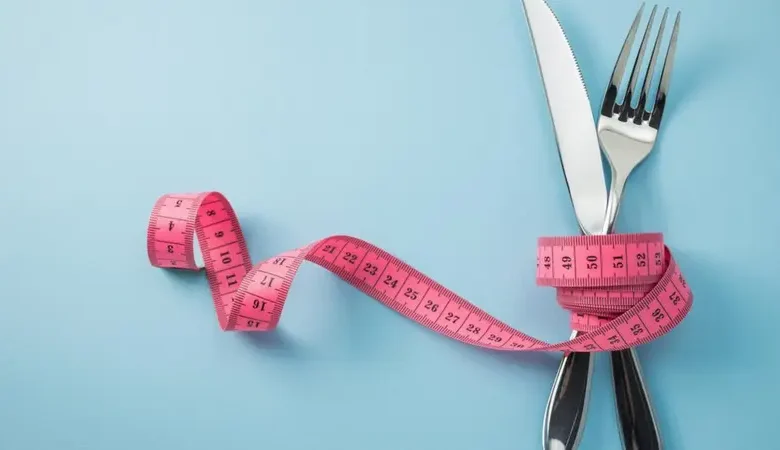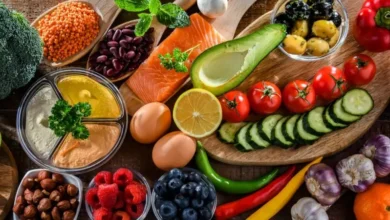New Year’s resolutions: It is time people ditch restrictive diets, health experts say

It is time people ditch restrictive diets for their New Year’s resolutions and choose more sustainable ways to stay healthy, certified dieticians and eating disorder specialists said.
The beginning of the year is often a time when people set new goals for themselves, whether that is to spend more time with their families, travel more, or take better care of their health.
When it comes to weight loss as a goal, sometimes people may opt for quick fixes rather than take the time to understand what their bodies need.
“Fad diets are easy at the beginning because they are simple for the brain. They tell you exactly what you need to eat or restrict. It is either black or white, so you do not need a lot of mental effort to follow them,” Intuitive Eating Dietician and Certified Health Coach Rola Ghaddar said.
“However, with time, it becomes harder because your body’s natural response is to reject it,” she added.
Restrictive dieting, or “under-eating,” for long periods of time can have serious effects on a person, according to the UK’s National Centre for Eating Disorders.
Restrictive dieting, or “under-eating,” for long periods of time can have serious effects on a person, according to the UK’s National Centre for Eating Disorders.
According to the center, restrictive dieting can take many forms including calorie restriction, severe eating restraint, eliminating specific food groups because of fear of putting on weight, strict clean eating programs that label specific foods as “bad,” and overexercising without eating enough for your activity.
And while a person may start to notice a change with the number on the scale, starving the body of foods it needs is not sustainable and could in fact lead to weight gain once a person stops dieting, according to Founder of Nutrition Untold and Licensed Dietician Maria Abi Hanna.
Nutrition Untold is a wellness and fitness service that puts bettering people’s relationship with food at the forefront of its nutrition programs and eating disorders treatment plans.
“Take a look at the diet cycle. When someone starts a diet, the first thing they do is restrict calories. After a while they start feeling deprived and with time the weight loss starts to plateau, and generally the food cravings start to get stronger. This results in binge eating and eventually causes the weight to go back up and the person feels guilty and defeated,” Hanna said.
Restricting your body of the nutrients you need will slow down your metabolism, put your body under stress and increase your cortisol levels, reduce energy levels, and affect your hormone levels and reproductive health as well, Abi Hanna said.
According to Ghaddar – who uses a holistic nutrition approach with her clients to better their relationship with food and their bodies – restrictive dieting also has numerous psychological effects such as stirring feelings of guilt, failure and disappointment, and can lead to low self-esteem, disordered eating behaviors or eating disorders, and an unhealthy relationship with food.
But that does not mean weight loss cannot be achieved, Ghaddar and Abi Hanna reiterate.
The most key component of an effective weight loss plan is fixing your relationship with food, the Nutrition Untold founder said.
“We are often in a constant fight with ourselves about not allowing ourselves to eat. We label food as good or bad and judge ourselves based on what we eat. Once we make peace with food and give ourselves permission to eat, managing our weight becomes much easier,” Abi Hanna said.
Intuitive eating and losing weight do not have to be mutually exclusive, Ghaddar said, but the focus should be on building sustainable healthy habits.
“It is very normal to have a desire to lose weight while applying intuitive eating,” she said.
“Focusing on weight as an indicator for progress is not very constructive because weight is an inaccurate measure. It can change due to dehydration, water retention hormonal changes, constipation, etc. Therefore, it is good to focus on building sustainable healthy habits instead. Weight changes will be the result but should not be the focus.”
Some healthy habits the dieticians shared with Al Arabiya English include:
-Focusing on the quality of food you eat
-Eating mindfully
-Not depriving yourself of food you crave and not feeling guilty about eating them
-Focusing on moderation rather than deprivation
-Including joyful movement at least 3 times per week
-Taking breaks during meals and checking in with fullness cues
-Sending gratitude to your body for all the functions it helps you do.










